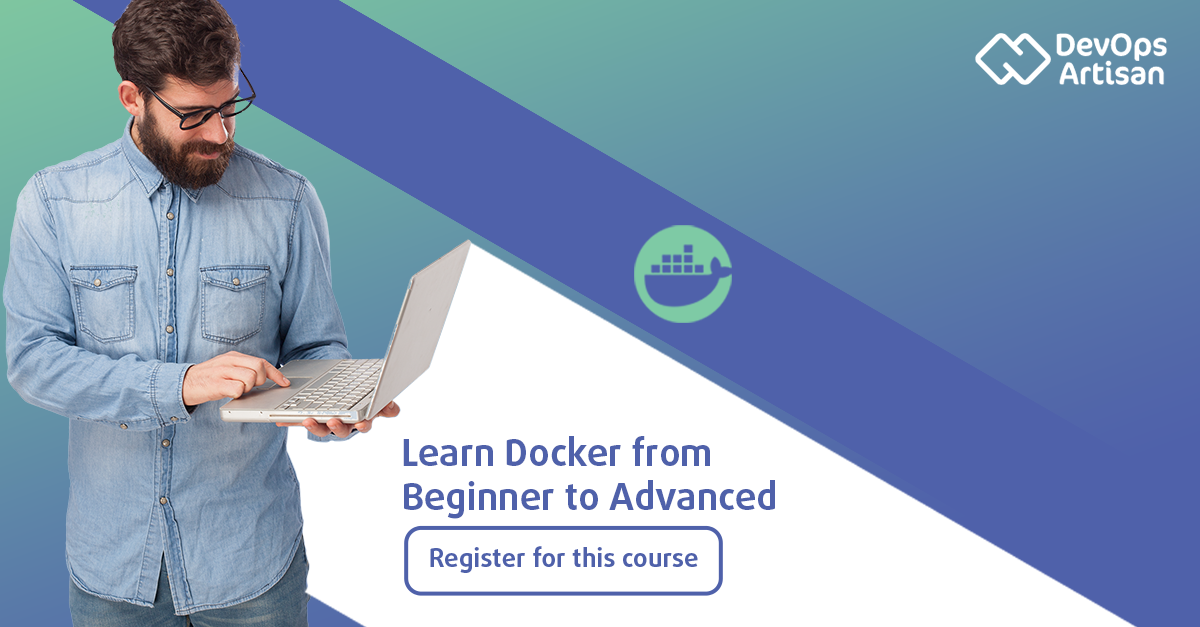The DevOps as a movement is to bring together two traditionally completely separate types of teams: the developers that write the applications and the operations people. Find out more about DevOps Ecosystem and Docker role in it by watching the video below:
[Video Transcript]
So before diving straight into Docker, let's just focus a bit on the larger ecosystem that includes Docker, which is DevOps. Now the main idea behind the DevOps as a movement, so to say, is to bring together two traditionally completely separate types of teams: the developers that write the applications and the operations people.
Or or the sysadmins the people responsible for making sure that those applications written by the developers will run properly from the developers laptop from the first test on the developers laptop to the data center to the public cloud and even sometimes in between between, and especially with the introduction of ever growing public Cloud offerings nowadays the need to increase this ability to automate and quickly deploy structured Services has increased tremendously. Nowadays, when you know, press that buy or deploy button in a public Cloud you expect that thing that you just bought to be ready right away or in just a matter of minutes.
And traditionally, developers need to focus just on the code. Right.
Building the application testing it not worrying about the infrastructure that the code runs on. While the other team the operations people only took care of the Physical or the virtual infrastructure with everything in it, like compute, storage, networking.
How do you access it remotely? How do you access it in a secure manner and so on? So if we were to think of a similar term to DevOps, I would say that DevOps is collaboration, between developers and operations.
This is a more natural kind of collaboration doesn't just imply, you know communication between these teams, because theoretically we have that already.
Right. But it's about blurring the lines between these two traditional job roles and also reaching out into the others area of expertise.
So developers now need to understand how a cloud infrastructure works, so that they can package their applications in a more compatible manner. Also on the other hand operations teams need to understand that they are not simply providing the infrastructure, but now their task would actually be running real code, real applications, that they should be aware of.
So what started as a simple idea of collaboration between developers and operations has grown into a huge ecosystem. An interesting interactive overview of this can be found at this link here on the screen digital AI which is previously part of zblabs. Of course, a periodic table of elements has nothing to do with having DevOps, you could call it a marketing stunt, but it doesn't make for a nice presentation and also points out, just how huge this Alcove system has become lately.
I would bet that none of you knows or has heard of more than half of these tools out there which is why I would strongly encourage you to have a look and decide for yourselves where a knowledge deep dive makes sense for you. and this ocean of DevOps play with this link for a bit to figure out which of these make sense for you and make sense for you and your future career.
Now to reach it either, use the link on the screen or just search for Periodic Table of DevOps or just wait for the PDF presentation to arrive in your inbox after the webinar.
So to help navigate this DevOps ocean, we have Bittnet and especially the people in charge of the DevOps autism project.
We have defined several learning paths to guide you and the stern. So our paths here at DevOps Artisan are aligned with specific job responsibilities, and profiles - that include the most with like to think that are the most relevant tools out there that we have found in each specific field, taking you from an associate level to an expert level right from from Zero to Hero.
We cover pretty much the entire DevOps Loop starting from writing and managing the application code, moving on to building and release automation with Jenkins.
What else we have here: Configuration Management, right, with tools like Ansible, Chef, Puppet, Deployment, Docker, Containers and orchestration with Kubernetes, Monitoring with Elastic Stack, which you might know as the elk stack made up of elastic search, Logstash Kibana, Prometheus from for time series databases and of course security and DevOps tools.
By the way, this slide is just the current state of affairs, we're constantly adding more technologies to our offerings.
So make sure, you use that email address, ask for more.
If you want to learn more about Docker, register now for one of our courses!

